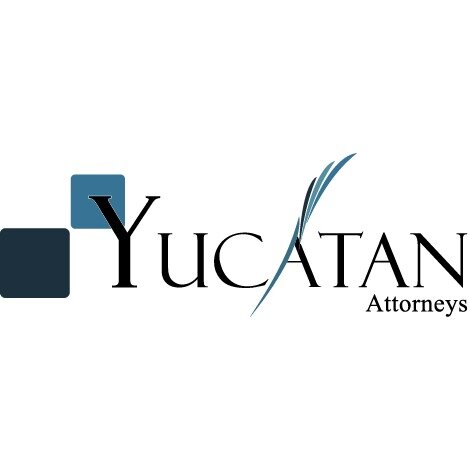Best Tax Increment Financing Lawyers in Mexico
Share your needs with us, get contacted by law firms.
Free. Takes 2 min.
Or refine your search by selecting a city:
List of the best lawyers in Mexico
About Tax Increment Financing Law in Mexico
Tax Increment Financing (TIF) is a public financing method that is used to subsidize infrastructure and community-improvement projects. In Mexico, TIF is a relatively new tool that municipalities can use to support urban development and redevelopment projects. The goal is to stimulate economic development by leveraging future tax income increases resulting from rising property values within a designated TIF district. The funds generated can be used to repay the costs of the development, through bonds or other financial tools.
Why You May Need a Lawyer
Seeking legal advice is crucial when engaging with Tax Increment Financing as it involves complex financial and legal structures. Common situations where legal help may be necessary include:
- Understanding the eligibility and suitability of a proposed project for TIF.
- Negotiating terms of development agreements between public and private entities.
- Ensuring compliance with all relevant federal, state, and local regulations.
- Dispute resolution concerning property values, tax assessments, or project impacts.
- Structuring and issuing bonds or other financial instruments.
Local Laws Overview
Tax laws in Mexico, including those related to Tax Increment Financing, are subject to various local regulations, which can vary by state and municipality. Key aspects include:
- Designation of TIF districts according to local economic needs and opportunities.
- Specific legislative frameworks established by each state for the adoption and administration of TIFs.
- Criteria for types of projects eligible for TIF, with emphasis on public benefit and community improvement.
- Requirements for stakeholder engagement and public consultations during project planning and execution.
- Compliance with environmental and zoning laws to ensure sustainable development.
Frequently Asked Questions
What is Tax Increment Financing?
Tax Increment Financing is a financing tool used to fund infrastructure and community-improvement projects by capturing future tax income increases resulting from rising property values in a designated area.
How are TIF districts established?
TIF districts are established by municipal governments, often in areas identified as needing revitalization or capable of benefiting from economic development.
Who can use TIF financing?
Typically, local governments and developers can use TIF financing for projects that align with public objectives such as urban renewal, infrastructure improvement, and economic development.
What kinds of projects are eligible for TIF funding?
Eligible projects often involve infrastructure improvements, public amenities, affordable housing, or economic development initiatives that yield significant public benefits.
How are TIF projects funded?
TIF projects are funded through incremental tax revenues generated by the increased property values within the TIF district, which can be used to repay bonds or cover direct costs.
How long do TIF agreements typically last?
TIF agreements usually span 20-30 years, allowing sufficient time for development, tax capture, and repayment of financing obligations.
What are the risks involved with TIF projects?
Risks include fluctuating property values, potential shortfalls in projected tax revenues, and complicated compliance requirements that may impact financial feasibility.
Is public participation required in TIF planning?
Yes, public participation is often required, allowing stakeholders including residents and businesses to provide input and feedback on proposed developments.
Can TIFs impact existing local government budgets?
While TIFs are designed to generate new tax revenues, they can sometimes divert funds from existing local budgets, affecting other public services.
How do I begin the process of establishing a TIF district?
Start by consulting with legal and financial experts to assess the feasibility, identify eligible areas, and engage with local government officials to initiate the legislative process.
Additional Resources
For further information and assistance, consider reaching out to:
- Municipal planning and finance departments.
- Local chambers of commerce and business councils.
- Legal firms specializing in municipal finance and urban development.
- Public policy and urban planning think tanks.
- National and state government portals on economic development.
Next Steps
If you believe your project could benefit from Tax Increment Financing, consider the following steps:
- Research local regulations and identify whether your project lies within a potential TIF district.
- Consult a lawyer with experience in municipal finance and TIF to evaluate eligibility and develop a strategic approach.
- Engage with local government officials to discuss potential benefits and community impacts of your project.
- Prepare detailed project proposals assessing economic viability, community benefits, and compliance with local laws.
- Participate in public hearings and consultations to refine project plans and ensure transparency and community support.
Lawzana helps you find the best lawyers and law firms in Mexico through a curated and pre-screened list of qualified legal professionals. Our platform offers rankings and detailed profiles of attorneys and law firms, allowing you to compare based on practice areas, including Tax Increment Financing, experience, and client feedback.
Each profile includes a description of the firm's areas of practice, client reviews, team members and partners, year of establishment, spoken languages, office locations, contact information, social media presence, and any published articles or resources. Most firms on our platform speak English and are experienced in both local and international legal matters.
Get a quote from top-rated law firms in Mexico — quickly, securely, and without unnecessary hassle.
Disclaimer:
The information provided on this page is for general informational purposes only and does not constitute legal advice. While we strive to ensure the accuracy and relevance of the content, legal information may change over time, and interpretations of the law can vary. You should always consult with a qualified legal professional for advice specific to your situation.
We disclaim all liability for actions taken or not taken based on the content of this page. If you believe any information is incorrect or outdated, please contact us, and we will review and update it where appropriate.
Browse tax increment financing law firms by city in Mexico
Refine your search by selecting a city.

















